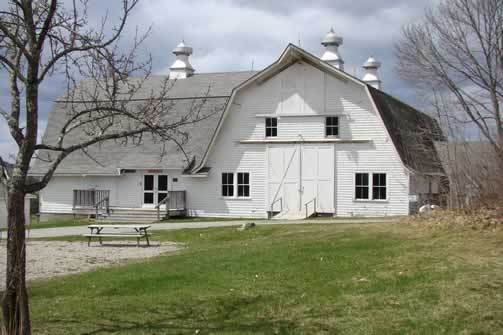When asked why he robbed banks, Willie Sutton famously replied, “because that’s where the money is.” The quote popped up while I was doing some reading about why (or whether) audiences for classical music have been declining generally, and particularly in Maine.
One of the writers on the subject pointed out that except for the current recession, audience sizes actually have been growing in absolute numbers. Apropos of Sutton, he wondered out loud why symphony orchestras are not going where the money is, catering more to their core audience — people older than 49 who have disposable funds, leisure and appreciation of the finer things in life.
These are the people who attend concerts, but more important, they are either sponsors themselves or influence those who sponsor orchestral music, which is where the real revenue comes from.
But instead of finding out what that audience wants and giving it to them in spades, orchestras resort to all manner of gimmicks to attract a “younger” crowd, which doesn’t work. Educational programs for the very young are popular, but the live audience for “pops” or in-between categories is declining as fast as that for classical music.
Laurie Kennedy, whose Sebago-Long Lake Music Festival (July 17-Aug. 14) at Deertrees Theater in Harrison has been in existence for 40 years, has seen modest but generally continuing growth during that time. She says that attracting a core audience does not mean offering nothing but old favorites. Tastes evolve.
“When we first started, if I had proposed playing a Shostakovich quartet, I would have been drummed out of town,” she said. “Now that’s standard fare, and we offer some works that are much more avant garde at almost every concert.”
The Salt Bay Chamberfest (Aug. 14-24) at Darrows Barn at Round Top Farm in Damariscotta — one of the fastest-growing classical series in Maine — is noted for its unusual programming. The audience at the concerts I have attended seems no more young or hip than ordinary, but it not only tolerates but applauds the most “modern” of compositions.
The criterion is the quality of the music itself. There’s a lot of bad music by contemporaries of Bach and a lot of good music written after the year 2000.
The Portland Chamber Music Festival (Aug. 9-18 at the University of Southern Maine’s Abromson Center) also seems to be growing, from what I’ve seen at recent concerts. It takes a slightly more cautious approach to a traditional audience.
Second to none in its offerings of contemporary fare, including the winners of a composition competition, the festival generally sandwiches the roquefort between two slices of white bread.
The Bowdoin International Music Festival also continues to be well attended. Its Festival Fridays are often sold out, and the last Wednesday concert I attended was standing-room only.
From anecdotal evidence, then, the classical music scene in Maine seems to be healthy in terms of live attendance. Angels are in short supply, however, primarily because of the economy.
Perhaps more businesses will come to realize that the over-49 demographic is a better bet for sales than the youth categories. Or maybe the 1 percent will develop the noblesse oblige that characterized some former aristocracies. I’m not holding my breath.
Christopher Hyde is a writer and musician who lives in Pownal. He can be reached at: classbeat@netscape.net
Send questions/comments to the editors.



Success. Please wait for the page to reload. If the page does not reload within 5 seconds, please refresh the page.
Enter your email and password to access comments.
Hi, to comment on stories you must . This profile is in addition to your subscription and website login.
Already have a commenting profile? .
Invalid username/password.
Please check your email to confirm and complete your registration.
Only subscribers are eligible to post comments. Please subscribe or login first for digital access. Here’s why.
Use the form below to reset your password. When you've submitted your account email, we will send an email with a reset code.